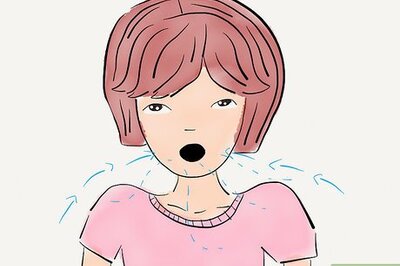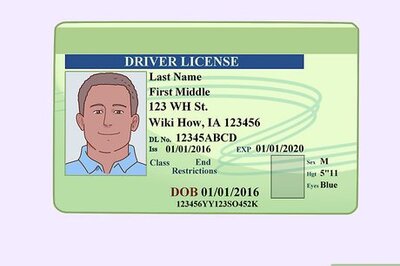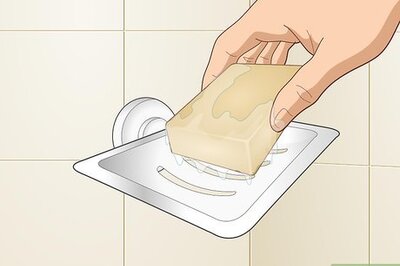
views
KOCHI: During the admission process this year for the kindergarten section of a private school, principal Jeena Mohan (name changed) had a tough time. Ever since the State Government announced that a student has to complete six years of age on June 1 for admission to Class 1, the management had taken the decision that the minimum age for entry to Lower Kindergarten would be four. “Many parents, who have children of three, and three and a half years, were upset,” says Jeena. “They were keen to get the child off their hands.” However Jeena agrees with this cut-off date. “There is a big difference between three and four years,” she says. “A child, at three, is unable to hold a pencil properly. There is a lack of clarity in speech. And there is also the problem of toilet training.” Another person who agrees with Jeena is Annie Cherical, teacher in charge of the kindergarten at Vidyodaya school, Thevakkal. “It is good to have the minimum age at four,” she says. “Children are more ready when they are older. I know that parents say that children are smart at 3 1/2 or earlier. But they are talking about their child only.” On the other hand, the Vidyodaya teachers have noticed that in a class where there are children between 3 1/2 and 4 1/2, usually those who are four plus perform much better. “We can observe this very clearly,” says Annie. “But, at the same time, I am not saying that there is anything wrong with the 3 1/2 year old child.” Meanwhile, there has been a mixed reaction among the parents. Jiny Soney, a mother of two young girls, says, “My daughter, Veronica, joined kindergarten when she was three and a half. And she had no problems whatsoever.” Her younger child, Victoria, at 2 1/2, is already in a playschool and has learned songs, numbers, and alphabets with ease. “Children are much smarter these days,” she says. But Neeta Pinto had an entirely different reaction. Last year, her son, Avarachan, was admitted, at 3 years and 7 months, into the lower kindergarten of a leading private school. “But he just did not want to go school,” she says. “Avarachan wanted to play and have fun.” Neeta spoke to the child’s paediatrician, who suggested admitting the boy a year later. “I have not regretted my decision at all,” she says. “Mentally and physically, my son has grown and is more capable of learning now.” However, Dr Siju Thottappilly, who deals with the behavioural problems of children, sides with Jiny, rather than Neeta. “The earlier children go to a creche or a playschool the better,” he says. “It is a more suitable option than being looked after by a maid-servant, especially if the mother is working. Maid-servants will not provide as much care. In school, children are able to develop their social skills.” But some children find it difficult to develop their skills, because schools these days teach too much too soon. “In some institutions, what is taught in Class 2 is being imparted in kindergarten,” says Jeena. “Children tend to develop an aversion to studies.” On the other hand, in her school, they try to avoid burdening the child. “Writing is taught only in upper kindergarten,” she says. Annie says that formal learning like writing and reading should be avoided because it is far too early for young children to assimilate these concepts. In his practice, Siju admits he has children who feel pressured when they have to do compulsory studies in playschool and nursery. “A younger child finds it difficult to cope,” he says. “But in good schools children learn only through games and play, and this should be encouraged.” Overall, it is a matter of debate whether this cut-off age of four is good or bad for children. “There have not been any scientific studies that have been referred to, regarding this,” says Annie.

















Comments
0 comment